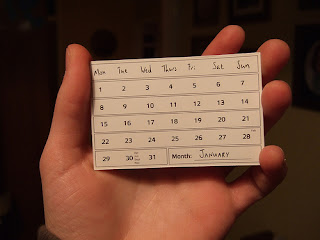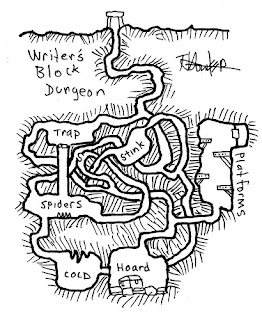 |
| Image of half time by frederick.s, via Flickr.com |
I will complete my project for today by taking stock of what I have learned thus far.
- First, practice may not make perfect, but it sure makes it easier to get started or think of a new topic to write about after a stretch of writing regularly. When I started this project. I sometimes spent excessive time looking at the screen, thinking about what to write. And then I'd spend about as many hours as there were left before midnight to finish my piece for the day. Often it was obvious - at least to me - that I stopped because I ran out of time, not because I felt I had finished the piece. After six months, I have set myself a goal of spending no more than two hours each day on the project and have been able to stick to that new rule.
- Second, I continue to find that my own experiences, even those from childhood, are the easiest for me to write about. Because practice is good for developing skill, I think the pieces are getting better. I hope that by the end of the year I will be able to write the pieces from the third-person point of view instead of first-person. This lesson remains one of the most remarkable for me because I always thought I needed to get away from Minnesota in order to have experiences worth writing about. Instead, I find my life in Minnesota as a child still offers me plenty of material. Maybe it is the influence of Garrison Keillor who has taught many people to look around and observe what is in front of them.
- Third, writing about myself, writing words that I had kept to myself, from others, has been more liberating than I had expected. It is like practice makes perfect - it gets easier to let go of the some of the camouflage that protected my ego each time. And my ego has survived. I still may need to write some of my stories as if they are fiction to give me plausible deniability. Some I have met here have asked how I dare to post what I write on a blog. I replied that the stories are mine, not someone else's. How can someone steal my stories? If what I write serves to inspire someone else to write, that's a good outcome. Besides, I still have a guardian angel, maybe even more than one.
- Fourth, I will continue even after I reach Day 365. I will continue because the habit is a good one and by then the habit will be well established. Writing every day has also made it much easier for me to put together a Toastmasters speech. I plan to join the San Diego Writers and Editors Guild in order to share my writing experiences with others, to get feedback from others, to develop skills from others more experienced than I.
These lessons aren't so different from those I reported after my first week. I don't consider that to mean that I haven't learned anything since then. I need to use the same or similar words to describe the lessons, but the depth of the learning has increased over time.









